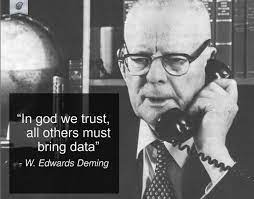You know, thats an interesting question. I’m a pretty fit, active person and always have been. I regularly run, mountain bike, road bike, hike, ski, whitwater kayak, rock climb, etc… and generally what we see here is that the more fit you are, the more subtle the benefits of rapamycin.
I think the sleep benefits are likely the first thing I started noticing - perhaps 3 to 6 months after starting. Just a lot deeper sleeps, fewer wakings during the night, feeling more refreshed in the morning… I think of it as a more youthful sleep phenotype… basically I started waking up in the morning feeling like I did 20 years ago. I also noticed that I used to get phlegm buildup while sleeping, and would have to clear my throat and spit in the morning. That went away with the rapamycin. Similarly, I used to get quite a bit of “sleep” buildup (not sure of the medical term), the crud that builds up near your tear duct of the eye over night “sand” from the sandman… you know what I’m talking about… that all went away after I started rapamycin.
At the same time, as my quality of sleep improve, my energy levels improved. I used to be tired in the afternoon (and didn’t feel that well rested when getting up in the morning). If I had the opportunity, I could easily have a nap in the afternoon. Over time (3 to 6 months after rapamycin initiation) I found I had a lot more energy. My energy did not slow in the afternoon - I could keep going to 9pm or midnight without a problem. I could even pull all-nighters, working through the night or getting minimal sleep (e.g. 3 to 5 hours) and get up and be fully functional (just like in college days). I had not been able to do that in many, many years. If I had a bad sleep during the past decade, my day was largely shot. After starting rapamycin I felt much more resilient to shorter sleep nights.
One more functional example; I do road trips occasionally with my kids. After using rapamycin for a year+ I started doing something I haven’t done since college - I started driving all night during longer road trips, so my family could sleep while I drove to the destination. I would not have done this 10 years ago because I’d have been too wiped out the next day to function. But, now this wasn’t much of a problem. I was still tired the next day, but would not get the headaches, complete loss of focus ability, etc. that sleep deprivation typically caused me.
The slow reduction of aches and pains over time is subtle and takes many months in my experience. But at some point I realized that wow - I don’t have the same aches and pains I had a year ago. All my joints feel like they did 20 years ago. No more aches when getting out of bed in the morning, faster return to baseline after exercise, etc. All of this is hard to quantify, and some is likely placebo effect, but 1 year out from starting rapamycin I felt a lot different as an athlete. My body just felt more together, like it did 20 years ago. When I started doing my more regular blood testing and then calculating my biological age as measured by the Levine Phenotypic calculator and Aging.ai online calculator - my biological age was about 12 to 15 years below my chronological age. Sadly, I did not do this prior to initiating rapamycin, so its not a well controlled measure.
Oh and one other thing. The longer I’ve been on rapamycin, and the more I believe in the effects, the more I believe that there are second-order psychological effects, which I’ve outlined here: Rapamycin Changes How you Think About Aging
Hope this helps.

